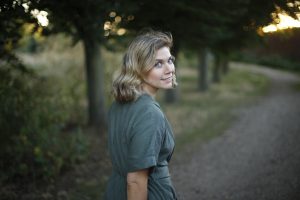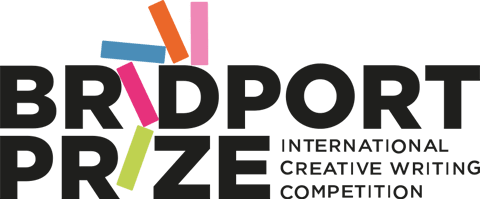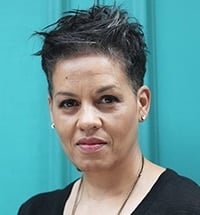Masterclass with…
Gemma Reeves, Debut Novelist.
Gemma is a writer and teacher who lives and works in London. She graduated with distinction from the MA in Creative Writing at Bath Spa University and holds an MA in Twentieth Century Literature from Goldsmiths. She has co-written award-winning non-fiction books and was Highly Commended in the 2019 Bridport Prize.
Victoria Park is her first novel.
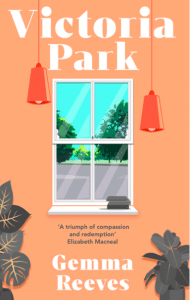
Jump on your if not now, when? moment
Everyone’s journey to becoming a writer is unique – there’s no one clear pathway and that’s what makes it such an exciting career. Writer’s come from all kinds of backgrounds, do all kinds of jobs, and begin writing at different stages of their lives – they might publish a book at eighteen, or eighty. They might start writing because they have a story they’re burning to tell, or because no one is writing the kind of story they want to read – or can relate to. There is no right or wrong time to put pen to paper, but for me it came after years of ghostwriting and teaching in outreach settings. I didn’t realise it at the time, but I was honing my craft. Even though I was writing non-fiction, not stories, it was a way for me to understand how to tell a story – even if that story was about food, or fashion, or a picture-book for kids. I started teaching around the same time, and I realised that both kinds of work involved helping people find their voice. After about eight years, I figured I should take my own advice… and if not now, when?
Read outside your usual taste
One thing I think all writers have in common is reading. Speak to any writer, and you’ll discover a person deeply moved by all different kinds of books. All writers are just people who love a good story, and then, eventually over time, realise that they have stories of their own to tell. I was a voracious reader growing up – consuming anything that was on my parent’s bookshelf which meant I was reading a real mixed bunch – think Russian classics alongside my Dad’s intense sci-fi collection. I didn’t love everything I read, but it taught me how a novel could take many forms, that it was endlessly flexible, adapting both to the times and the imagination of anyone who wanted to try their hand at it.
Don’t get hooked on rules
There’s all kinds of ways to write a novel and all kinds of novels. It might be a monologue, or one really long sentence that lasts 300 pages. It can go back in time, and then race ahead to the future. It can break all the rules of grammar you’ve been trying to learn. Going back to uni to study writing, I quickly realised there are no hard and fast rules. All I could do was try to honour my inner reader. I love to read novels which are told from multiple perspectives, so that you piece together a larger story through differing points of view rather than following one or perhaps two main characters throughout a book. So, I knew I wanted to be a bit more experimental with how I told a story. And then I had to figure out what I wanted to say about the world we live in. For me that was the importance of community. The life I’d spent notwriting, became my writing life –– all the work I’d done in different kinds of London communities, thinking about why people need communities around them, or why they reject it, or seek it out, all fed into the book that would become Victoria Park.
This idea became the foundation of my writing practice – not making myself write everyday, or at the same time each day, or finding the perfect spot, or mapping out my plot, or keeping a notebook on me. These can be brilliant, really helpful things to do, but they are subject to changes outside of your control. Instead, just commit to your wider purpose.
Follow your curiosity
Writers are keen observers – eavesdroppers, really. They’re interested in what’s going around them, they’re always paying attention to their environment. A lot of the writing process isn’t in the actual writing, it’s about following your interests. Googling things, watching YouTube videos, being inspired by movies. It’s listening to your favourite music, paying attention to the lyrics, the rhythm in the language. It’s wandering through a museum, discovering a new photography book. It’s all the things which seem like they have nothing to do with writing! I often get stuck writing dialogue, so I read the scripts to movies that I love, trying to figure out how the writer has captured the essence of their character in their speech. Follow your curiosities and let them feed the work…
